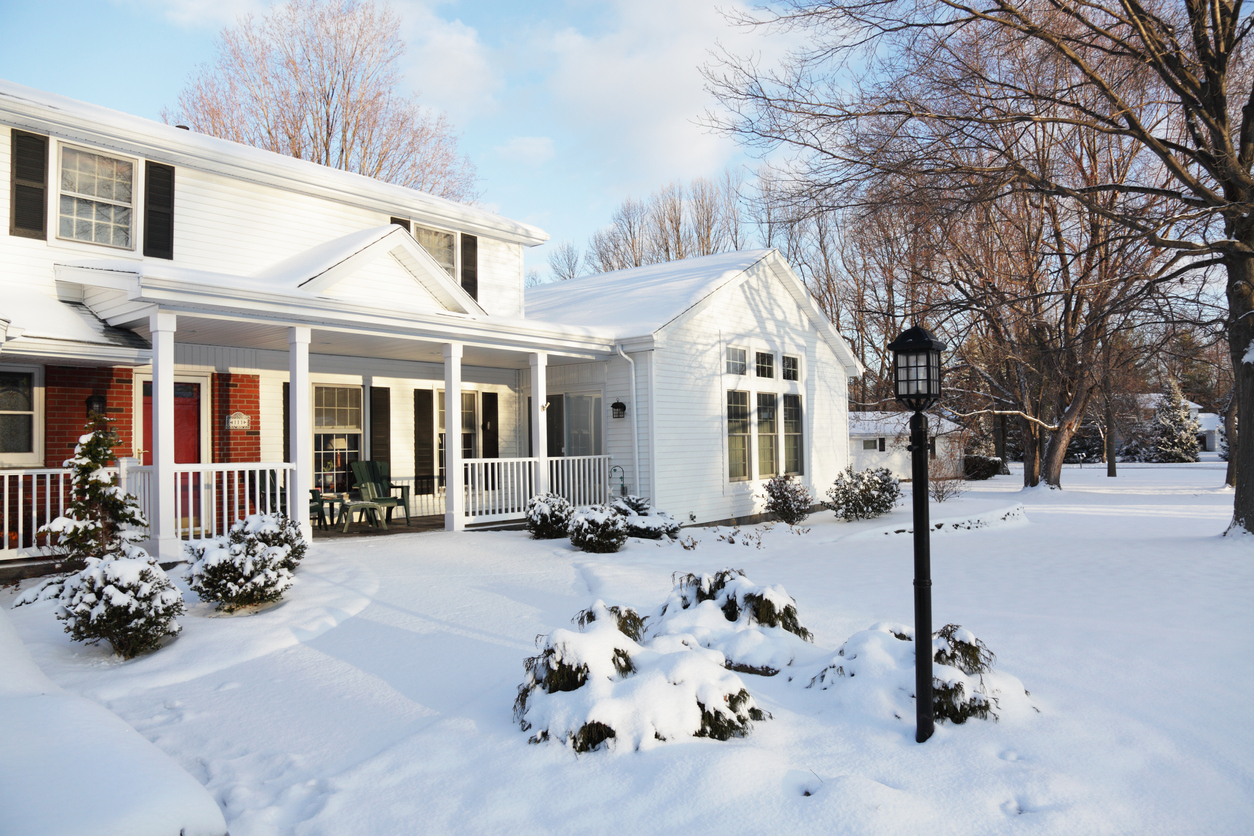Personal Risk Management — Winter Home Maintenance

Here are nine “to-dos” to ensure your home is safe and comfortable all winter:
1. Clean out dryer ductwork.
Lint and debris can accumulate in the ductwork of your clothes dryer. In winter, we tend to use our dryers more, and any debris clogging the ducts can start a fire. Clean your lint traps, ductwork, and vent openings.
2. Reverse your ceiling fans.
The ceiling fans you rely on to keep cool air flowing through your home hold a secret: many of them can be reversed with a switch located on the body of the fan. Flip the switch, allowing the fan to rotate clockwise and to push warmer air from the ceiling down into the room.
3. Put together a winter emergency kit.
A good winter emergency kit contains at least a three-day supply of water and nonperishable foods, a radio, flashlights, batteries, personal hygiene items, first aid, and sanitizing wipes. Be sure to charge your cellphone and battery banks before winter weather is expected to arrive.
4. Consider a backup generator.
If power should be interrupted, an emergency generator can be a lifesaver. Depending on the generator model, you can power essential home appliances or your whole home. No matter which generator you choose, be sure it is never run indoors.
5. Stock up your medicines.
Colds and flus strike during the cold winter months. To protect yourself and your family, stock up on over-the-counter medications and disinfectant products. Have an adequate supply of prescription medications on hand in case of extended emergencies.
6. Clear your walkways.
Slip and fall injuries are common during the winter months. Remove ice and snow as soon as it is safe to do so. Deicers or sand can be applied to reduce slipping hazards around the exterior of your home.
7. Check your HVAC filters.
If the system filters are clogged, this can create a strain on the heating equipment, potentially causing a failure. Check and replace your HVAC filters every month or two months, year-round, to keep your system in tip-top shape.
8. Check heating systems.
If your heater is fired by natural gas, it is a smart practice to periodically check the system for proper function. Pilot lights may go out, causing dangerous carbon monoxide poisoning. Your gas company can perform a safety inspection. While checking your heater, also check carbon monoxide detectors for proper function. Replace the batteries or the detectors themselves according to the instructions.
9. Stop slips and spills.
When you come in from wet, snowy weather, any water you track in can create slipping hazards. Choose absorbent door mats to whisk moisture away. Inside, store your boots and shoes in a rimmed boot tray to keep floors clean and slip-free.
About VIS
Volunteers Insurance Service Association, Inc. (VIS) was established in 1972 for the purpose of providing insurance and risk management services for volunteer-based organizations. In addition to still providing these insurance services today on a nationwide scale, we have expanded to provide noninsurance resources for members to manage their risks and improve their operations. By transferring the volunteer risk exposure to our program, we can help you protect your organization. Contact us today at (800) 222-8920 for more information on our programs and services. Join now!
